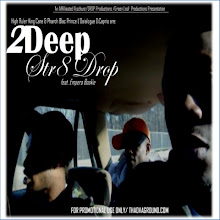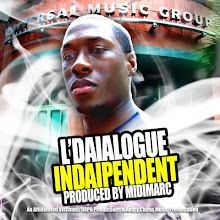
You see this man right here.
Mr. Willie Mitchell. You can say to a certain extent...that he single-handedly created classic R&B from a studio in South Memphis. He has ties to Drake's uncle (Mable "Teenie" Hodges), Al Green, Playa Fly and many other artists significant to Memphis music.
He died yesterday.
Check out the article below and brush up on the man many knew as "poppa"...and remember the legend when you are listening to his rhythm section on that Al Green record that you love soooooo much.
R.I.P. Mr. Mitchell.
-L'Daialogue
________________________________________________

LINK:http://www.commercialappeal.com/news/2010/jan/05/musician-music-producer-willie-mitchell-dies-age-8/
They called him "Poppa."
In the end, he was exactly that: patriarch to an extended family of musicians, big daddy to a large brood of blood kin and progenitor of a soul sound known the world over.
Producer, player, songwriter and sonic architect of Hi Records, Willie Mitchell was a father figure to many in life; he remains so in death.
Mitchell, 81, died Tuesday morning at Methodist University Hospital. He'd been in ill health since September, after breaking his hip, and in December went into cardiac arrest, said his grandson, Lawrence "Boo" Mitchell.
Funeral arrangements have not yet been finalized, though the family said there will be a private service and a public memorial in the coming days.
News of Mitchell's passing elicited an immediate outpouring of emotion from those who knew him best.
"I'm terribly saddened," said Otis Clay, the Chicago soul singer who came under Mitchell's tutelage in the late-'60s. "This man was like my father. I learned so much from him.
"What he taught me is how I've survived in a business that hasn't always been kind. But Willie was always kind, and he treated me like a son. And I loved him that way."
"It's hard to say anything, it's such a great loss," said Ann Peebles, who came to Mitchell as a raw teenage talent and blossomed into a star. "For me, he was the beginning of my career -- and, as a matter of fact, he was an inspiration all throughout my career."
Mitchell's most famous protégé, Al Green, was en route to Australia to begin a concert tour and could not be reached for comment.
If one were only to consider Mitchell's early work as a performer, his place in the pantheon of American musical greats would be secure.
But Mitchell would go on to exert an even more profound influence behind the scenes: assembling one of the greatest house bands ever, Hi Rhythm; discovering and molding Green's million-selling career, as well as those of soul stars like Clay, Peebles and O.V. Wright, and developing a sophisticated groove-fueled R&B sound that continues to be imitated today.
Born in Ashland, Miss., on March 1, 1928, Mitchell moved to Memphis with his family as a child.
A gifted trumpeter, Mitchell launched his career after being discharged from the Army in 1954 and became one of the era's most popular bandleaders, fronting a series of white-hot nightclub combos.
"I always had a real good band," recalled a laughing Mitchell in 2007. "Man, we'd wipe out anybody."
Mitchell soon found a home at Joe Coughi's Hi Records and its Royal Studios, a movie theater turned recording complex on Lauderdale Street in South Memphis.
There, he would record a series of popular instrumental records and dance hits like "Soul Serenade" and "20-75," while his band would back acts like Bill Black, Ace Cannon, Charlie Rich and Jumpin' Gene Simmons.
An intuitive alchemist when it came to the subtleties of sound, Mitchell's earliest recordings drew notice in the R&B world. He recalled that in the early '60s, Motown head Berry Gordy dispatched a contingent of his studio staff to Memphis on a kind of fact-finding mission.
"They were asking me, 'How do you mic your drums? How do you do this, how do that?' " remembered Mitchell. "They thought it was about technique or some system, but I just go by feel. That's the secret."
Although he continued to be a popular live draw, in 1970 Mitchell came off the road and took over the running of Hi Records following the sudden death of label owner Coughi.
It was during the early part of that decade that Mitchell would definitively put his stamp on soul music. Helping Mitchell was a tightly knit crew of session players he'd handpicked and tutored over the years, who would come to be known as Hi Rhythm.
Built around the three Hodges Brothers (guitarist Mabon "Teenie," bassist Leroy and organist Charles), Mitchell's stepson, keyboardist Archie Turner; and drummer Howard Grimes, Hi Rhythm grew as a unit into the '70s. Their playing would define the pleading charms of Syl Johnson's "Take Me To the River," the steamy showers of Ann Peebles' "I Can't Stand the Rain" and the gospel ache of O.V. Wright's "A Nickel and A Nail."
In their melding of jazz chords and R&B beats, Mitchell and his men changed the sound and feel of soul music as it entered the "Me Decade," moving the music from the dance floor to the bedroom.
Leading this shift was Mitchell's most famous charge, a young singer named Al Green. "With Al, I was looking for a specific sound," said Mitchell, who discovered Green during a gig in Midland, Texas, in 1969. "Of all the singers, he was the only one that could hear jazz changes and really sing in that style. Once we got that sound together, I just kept making those arrangements ... and it was just hit after hit."
In the late-'70s, however, Mitchell's partners sold Hi Records. Although Mitchell retained Royal Studios, the transition to new ownership and the loss of Al Green to the church meant that Hi's heyday had come to an end.
Though he remained prolific throughout the '80s, and '90s, Mitchell eventually ceded day-to-day operations of Royal to his two grandsons, Boo and Archie (whom he adopted as his own sons), a decade ago.
Even into his 80s, Mitchell's gifts continued to be appreciated by a new generation, as he helped shape records for contemporary talents like pop songman John Mayer and hip-hop crooner Anthony Hamilton.
In the 2000s, Mitchell would also reunite with Al Green for a pair of memorable "comeback" albums: 2003's I Can't Stop and 2005's Everything's OK. The singer never forgot the importance of his mentor. "Willie is like my brother, my father, my coach, my founder," noted Green in 2007.
Most recently, Mitchell wrote string and horn arrangements for Rod Stewart's new collection of R&B covers, and produced a forthcoming album for soul kingpin Solomon Burke.
For his contributions, Mitchell was recognized with numerous awards and honors. In 2004, the stretch of Lauderdale Street in front of Royal Studios was renamed "Willie Mitchell Boulevard." In 2007 and 2008 he received lifetime Grammy honors from the regional and national chapters of the Recording Academy.
Through it all, Mitchell stressed that all his success came simply from trusting in his soul.
"This business, man, it's not so hard. It's all about here and here," Mitchell observed, tapping his chest and head. "If you got the heart and the ears, you can make it. That's really all you need."
Mitchell is survived by two daughters, Yvonne and Lorrain, stepson Archie Turner, as well as his grandsons, Archie and Lawrence Mitchell, granddaughter Oona Mitchell, and nine great-grandchildren.
Willie Mitchell's career highlights
1963: Releases Sunrise Serenade, the first of more than a dozen instrumental soul albums
1971: Arranges and co-writes Al Green's smash "Let's Stay Together"; would help pen many of the singer's massive hits including "Call Me (Come Back Home)" and "I'm Still In Love With You"
1975: Helps engineer and arrange Rod Stewart's album Atlantic Crossing
1988: Rolling Stone Keith Richards asks Mitchell to work on his solo album; rock and pop stars, including Tina Turner, Boz Scaggs, John Mayer and many others, would do the same over the years
2003: Reunites with Al Green and produces his critically acclaimed "comeback" LP I Can't Stop, and its follow-up two years later, Everything's OK
2008: Receives Trustee's Award from the Grammy Foundation at ceremonies in Los Angeles
























.jpg)
.jpg)
.jpg)


No comments:
Post a Comment